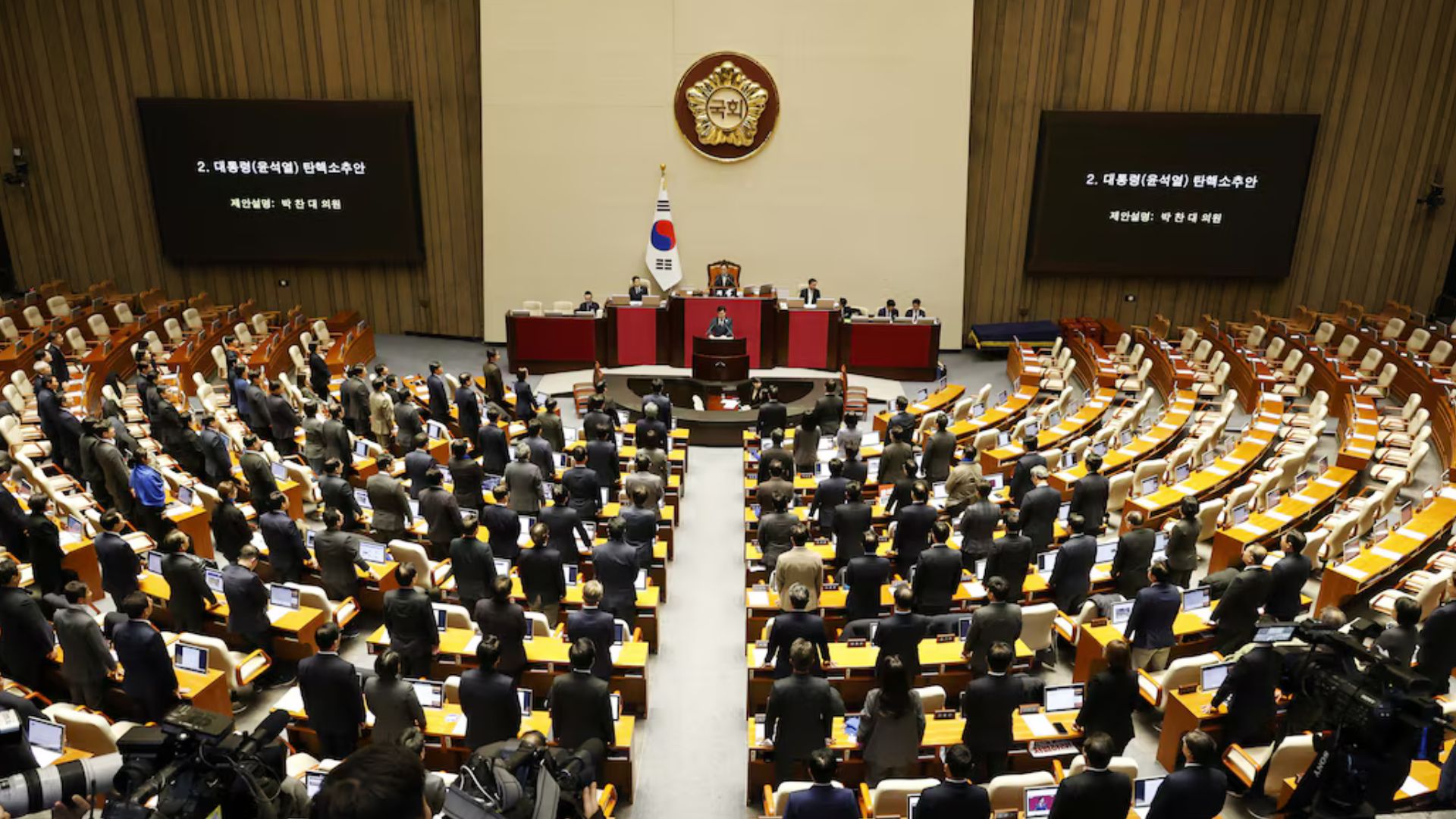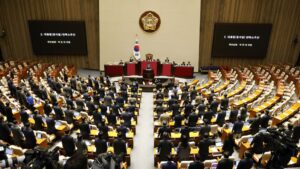In a dramatic development, lawmakers from South Korea’s ruling People’s Power Party (PPP) walked out of parliament during a vote on two key bills, including one calling for the impeachment of President Yoon Suk Yeol. The impeachment motion was filed by opposition parties after Yoon declared an ill-conceived martial law across the country, which led to a chaotic response, including lawmakers rushing into the parliament to reverse the decree. Despite facing criticism from both the opposition and his own supporters within the PPP, Yoon’s fate now rests on the success of the impeachment vote.
For the motion to pass, the opposition requires only eight votes from PPP members. However, with many lawmakers walking out, speculation has arisen that the president might evade impeachment. The PPP members left after casting their votes on a bill to create a special counsel investigation into corruption allegations against First Lady Kim Keon Hee. This bill failed by just two votes, with 198 lawmakers in favor, while 200 votes were required to pass it.
Also Read: South Koreans Use aespa’s ‘Whiplash’ to Protest President Yoon Suk-yeol’s Leadership
As the impeachment motion was introduced, one PPP member, Ahn Cheol-soo, remained in the voting chamber and publicly stated he would support Yoon’s impeachment. Later, three other PPP lawmakers returned to participate in the vote, gaining applause from the opposition. If these members voted against Yoon, the opposition would need just four more to secure the motion’s success.
PPP lawmakers faced severe criticism from Speaker Woo Won-shik and protesters outside the National Assembly. Woo urged the PPP members to return and cast their votes, stressing that participation in the voting process was crucial to protecting the country’s democracy. “The Republic of Korea is a democracy that’s made of people’s blood and tears,” he remarked, calling on lawmakers to act responsibly.
Protesters gathered outside the parliament, chanting slogans demanding the impeachment of Yoon, and reading aloud the names of those who walked out. The public rally intensified the pressure on the PPP to act. If the motion passes, the case will be sent to the Constitutional Court, which has 180 days to decide on the impeachment. Meanwhile, the South Korean Prime Minister would take over, and elections would be held within 60 days.
Despite the turmoil, the PPP held a party meeting while the parliamentary session continued, further drawing condemnation from the opposition. Speaker Woo emphasized that the PPP had sent a message about not attending the meeting, but insisted the doors remained open for lawmakers to return and cast their votes. As the deadline to vote looms, the fate of President Yoon remains uncertain.












